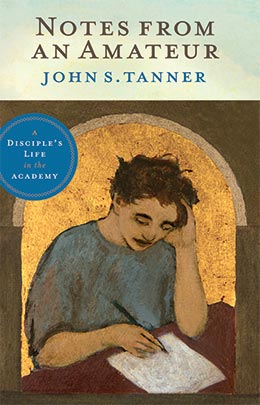“Such Stuff as Dream Are Made On”
John S. Tanner, Notes from an Ameteur: A Disciple’s Life in the Academy (Provo, UT: Religious Studies Center; Salt Lake City: Deseret Book, 2011), 100–1.
January offered me many occasions to reflect on Martin Luther King Jr. My reflections on King began with the new year and continued through the BYU forum.
As I drove to California over the New Year holiday, I listened to an audio book of King’s sermons entitled A Knock at Midnight. Listening to King’s resonant voice again reminded me of the power of his oratory. For me, King is much more compelling as a preacher than as a political thinker. It is one thing to read his sermons. It is quite another to actually hear him preach. The son, grandson, and great-grandson of a preacher, King was at home in the pulpit—and it shows. His preaching can make the hair on the back of your neck stand up.
On the Sunday before Martin Luther King Day, my good friend and neighbor offered copies of two of King’s speeches to our quorum. One was his familiar “I Have a Dream” speech, the other his eulogy for the little girls killed in the bombing of the 16th Street Baptist Church in Birmingham. Coincidentally, that same day we had a lesson in priesthood on “Our Heavenly Family,” which invited us to consider the statement, “Every person who was ever born on earth is our brother or sister.” MLK Day, together with the earthquake in Haiti, provided poignant contexts for our discussion of this doctrine.
The next day, Monday, BYU sponsored community service projects and a candlelight march. That day I reread King’s famous “Letter from Birmingham Jail.”
The following week, the forum speaker discussed the evolution of King’s ideas from 1963 to 1968. The speaker confirmed my impression that as King became increasingly caught up in the antiwar movement and issues of economic justice, his thinking became more radical. This evolution was evident in the sermons, which is probably why the later sermons often feel more compelling for me in what they oppose rather than in what they propose.
All these Martin Luther King events brought back memories of 1968, the year King died. I was a senior in high school when King was shot. It was a tumultuous time. The social fabric seemed to be unraveling at the seams, especially in Southern California where I lived. The music turned hard. Youth culture became dominated by drugs. There seemed to be love-ins and antiwar protests every weekend. In the wake of the Tet Offensive, even mainstream moderates like Walter Cronkite turned more and more against the war and the administration. Then King was shot in Memphis. Two months after that, Bobby Kennedy was shot in Los Angeles. A few days later, I spoke at my high school graduation. Our assigned topic was “joy.” It seemed incongruous to speak about joy when the country was being pulled apart by violence and hate.
King served for many in my generation as a conscience for the country. He called upon the nation to dream of a world not riven apart by hate but bound together by love. He invited us to embrace anew the dream of America as a land of liberty and justice for all. King was a dreamer. His dream for a better world shaped a nation. We now live inside his dream just as we live in other “patriot dream[s] that [see] beyond the years.” What Prospero says in The Tempest rings true for America: “We are such stuff as dreams are made on.”
